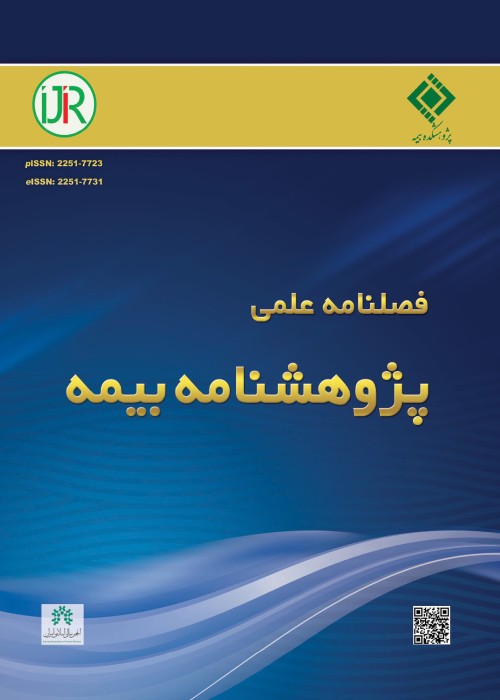Designing an intelligent evaluation system for predicting fire insurance claims using deep learning
Fire insurance is a type of insurance that provides financial protection against property damage caused by events such as fire, theft, and weather-related damage. The use of modern analytics methods in analyzing policies and predicting potential losses is of great interest to insurance companies and those involved in property insurance services. Claim prediction is a crucial measure for predicting future losses in insurance companies, particularly in property insurance, where it helps evaluate the Probable Maximum Loss (PML) based on risk theory.
This study focuses on developing claim prediction models for occurrence probability, severity, and time by creating a dataset, training various algorithms, and comparing their performance. Exploratory Data Analysis (EDA) is conducted to select relevant features, resulting in the selection of 44 fields from insurance policy and claim information. Recursive Field Elimination (RFE) is used to reduce the dataset dimensions, and informative fields are selected for each prediction model. The dataset consists of over 780,000 policy records and approximately 70,000 loss payments from the Iran Insurance Company’s actual fire application database spanning 10 years (2011-2021). Linear regression, random forest regression (RFR), support vector regression (SVR), and deep neural network algorithms are implemented for each prediction model. The accuracy of the algorithms is evaluated using mean squared error (MSE) and mean absolute error (MAE) values.
The results of the prediction models show that the deep multi-layer perception (MLP) algorithm performs the best. After hyperparameter tuning and multiple runs, the final MSE values are determined as 0.117 for occurrence probability prediction, 0.042 for loss severity prediction, and 0.106 for claim time prediction. The comparison of the innovative model results with test data demonstrates that intelligent models provide more accurate predictions. Accurate prediction is highly valuable for insurance companies as it allows them to mitigate financial losses. The use of deep learning in loss time prediction, in addition to severity and probability prediction, is a significant innovation in this research.
Machine learning techniques, such as deep learning, can help insurance companies optimize their services with higher accuracy, strengthen risk management practices, and provide tools for better decision-making. The application of deep learning in loss prediction can replace complex and inaccurate manual processes in insurance, leading to advancements in risk management, reinsurance management, and improvement of fire insurance pricing.
- حق عضویت دریافتی صرف حمایت از نشریات عضو و نگهداری، تکمیل و توسعه مگیران میشود.
- پرداخت حق اشتراک و دانلود مقالات اجازه بازنشر آن در سایر رسانههای چاپی و دیجیتال را به کاربر نمیدهد.




